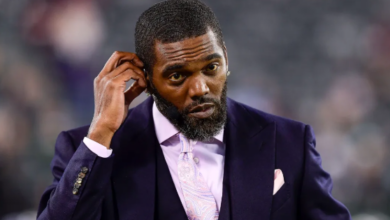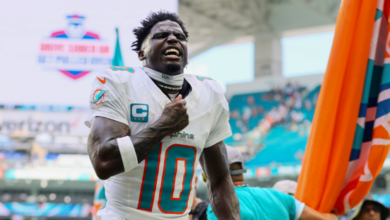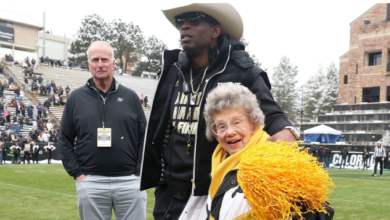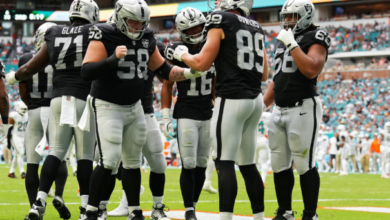2022 World Series – What Astros, Phillies need to do to win

The 2022 World Series matchup is set.
Starting Friday, the Houston Astros and Philadelphia Phillies will clash for the Commissioner’s Trophy in a meeting of one league’s favorite and the other league’s biggest underdog.
Under MLB’s new playoff format, the Phillies entered as the sixth and final seed in the National League but advanced all the way to the Fall Classic, while the American League’s No. 1 seed, the Astros, rolled over the rest of the Junior Circuit.
What has October taught us about each of these teams? What do they need to do to come out on top? And which players could be the difference-makers on both sides? ESPN MLB experts Jeff Passan, Joon Lee, Jesse Rogers and David Schoenfield break it down.
What’s the most impressive thing about the Astros this postseason?
Passan: Everything is a thing, right? Fine. If a single thing defines the Astros, it’s their pitching depth. They have Justin Verlander and Framber Valdez, both frontline starters, at the top of their rotation. They follow with Cristian Javier and Lance McCullers Jr., each of whom would be a frontline starter on most teams. As good as their starting pitching is, the sheer amount of relief talent in their bullpen — from closer Ryan Pressly to Rafael Montero to Ryne Stanek to Bryan Abreu to Hector Neris to Hunter Brown — makes any lead feel comfortable. The Astros are excellent at everything, but their pitching is why they remain undefeated this postseason.
Lee: The depth across Houston’s roster. If you had told the Yankees heading into the American League Championship Series that through three games, Yordan Alvarez and Jose Altuve would have just one hit apiece, New York would have been ecstatic. Instead, the rest of the Astros have led the way, from Yuli Gurriel to Alex Bregman to Chas McCormick to Jeremy Pena to Martin Maldonado. This Houston team can beat you in so many different ways, from its incredibly deep pitching staff to its lineup, which can knock you out with the long ball or beat you into the ground with singles and doubles. On top of that, it’s the consistency. Depth and consistency usually play well in October, and Houston has proved that against both the Mariners, in the AL Division Series, and the Yankees.
Why will it (or won’t it) work against the Phillies in the World Series?
Passan: Certainly the Phillies’ lineup, the way it’s hitting right now, poses a greater challenge than the Mariners or Yankees did for Houston. But as long as Dusty Baker manages with proper urgency and uses his bullpen as he can — mix and match and do not allow Kyle Schwarber, Rhys Hoskins, J.T. Realmuto and Bryce Harper third looks unless the starter is truly cruising — Houston has the goods to neutralize Philadelphia’s offense similarly to how it did Seattle’s and New York’s.
Lee: The Astros are the better team on paper, but being underdogs hasn’t stopped the Phillies so far in the postseason, after coming in as a third-place team from the NL East and beating the Cardinals, Braves and Padres on their path to the World Series. There’s also something to be said about that October magic, and getting hot at the right time. We’ve seen this run out for teams in the past, but Philadelphia has taken a cue from last year’s Braves and gotten scorching hot when it counts the most. Harper’s go-ahead homer in the National League Championship Series clincher was a sports moment too on-the-nose for the movies, but it felt written in the stars by the baseball gods.
Who is the one player who must deliver for the Astros to be champs from here?
Passan: Considering the Astros have gotten to the World Series with him practically nonexistent, perhaps Jose Altuve is a foolish answer. But to derail a hot and confident Phillies team, Houston needs production from the top of its order, and an Astros lineup with Altuve getting on base takes an engine that’s already spitting out plenty of horses and turbocharges it.
Lee: Pena has been Houston’s X factor so far in October. When Altuve and Alvarez have struggled, the previously unheralded rookie has come through and been a star for the Astros. If Altuve and Alvarez continue to struggle, guys like Pena, McCormick, Trey Mancini and Gurriel will need to help carry Houston to a World Series title.
What’s the most impressive thing about the Phillies this postseason?
Rogers: They instantly became the team everyone in the organization thought they could be, one with great starting pitching and massive power — enough in both areas to overcome any defensive flaws or bullpen unevenness. Harper, Schwarber and Hoskins aren’t missing mistakes and are playing with the most confidence they’ve had all year.
Schoenfield: The stars are hot — not just the sluggers, but also Zack Wheeler, who has a 1.78 ERA in his four starts. He could start Game 1 on full rest, but it might make sense for the Phillies to go with Aaron Nola and then Wheeler in Game 2 given that Wheeler started to tire around the 80-pitch mark in both of his starts against the Padres. An extra day of rest might help. But let’s mention something else: The Phillies’ bullpen has kind of figured things out a little bit, and manager Rob Thomson has done a great job adjusting on the fly and going with the hot hand. Seranthony Dominguez has allowed just one run in 7 2/3 postseason innings with 15 strikeouts and no walks — and that one run was in part a result of the wet conditions on Sunday. Jose Alvarado is throwing heat from the left side, and David Robertson has plenty of postseason experience. Thomson was even willing to use starter Ranger Suarez to close out Game 5 of the NLCS.
Why will it (or won’t it) work against the Astros in the World Series?
Rogers: The Phillies’ mojo will keep the Astros from winning in a short series, but eventually all that pitching will win out for them. The longer it goes, the better it is for Houston, as Philadelphia can’t match the Astros arm for arm. A best-of-seven usually isn’t won at the plate but on the mound. That’s where Houston prevails.
Schoenfield: The bullpen depth is still a little questionable — although Connor Brogdon had a clutch seven-out effort against the Padres in Game 4 and Andrew Bellatti has pitched well enough in his five appearances and could be a good matchup against Houston’s righty-heavy lineup (he allowed a .608 OPS against righties, but .866 to lefties). But what if Brad Hand has to face the Alvarez/Bregman/Kyle Tucker part of the order? And Thomson has been careful in his usage with Dominguez, who is in his first full season back from Tommy John surgery. He pitched just 11 times on back-to-back days in the regular season and has had days off between all six of his postseason appearances — at least two days in five of those. At some point, he’s going to have to go back-to-back days and maybe for a longer stretch of pitches.
Who is the one player who must deliver for the Phillies to be champs from here?
Rogers: It might be cliché to pick Harper, but he’s the guy. The Phillies’ heartbeat runs through him. They’ll be underdogs, deservingly, and they’ll need an extra special series to beat Houston. Who better to energize them once again than Bryce Harper? He’s already having a great postseason. As he goes, so goes the Phillies’ offense, which could shock the world by getting to a dominant Astros staff. It starts with Harper.
Schoenfield: I’m banking on another big series from Harper, but my key guy is Nola. Wheeler has the potential to dominate in his outings. The Astros are going to have the starting pitching edge in the games Suarez or Bailey Falter (or Noah Syndergaard) starts. Nola had two great postseason starts — 6 2/3 scoreless innings against the Cardinals and then one unearned run against the Braves. Against the Padres, however, he had a 4-0 lead but allowed back-to-back home runs in the second and then four runs in the fifth. Nola is also extra vital because if he can go deep, that means more fresh arms for the Suarez and No. 4 starter games. Oh, one reason to start Nola in Game 2 instead of Game 1: He had a 3.84 ERA in the regular season on four days of rest (14 starts), but 2.79 on five days (13 starts). If he starts Game 1, he would go again in Game 5 on four days of rest, but if he goes in Games 2 and 6, he gets five days of rest. The Phillies have an interesting decision on how to align their rotation.
Source link





